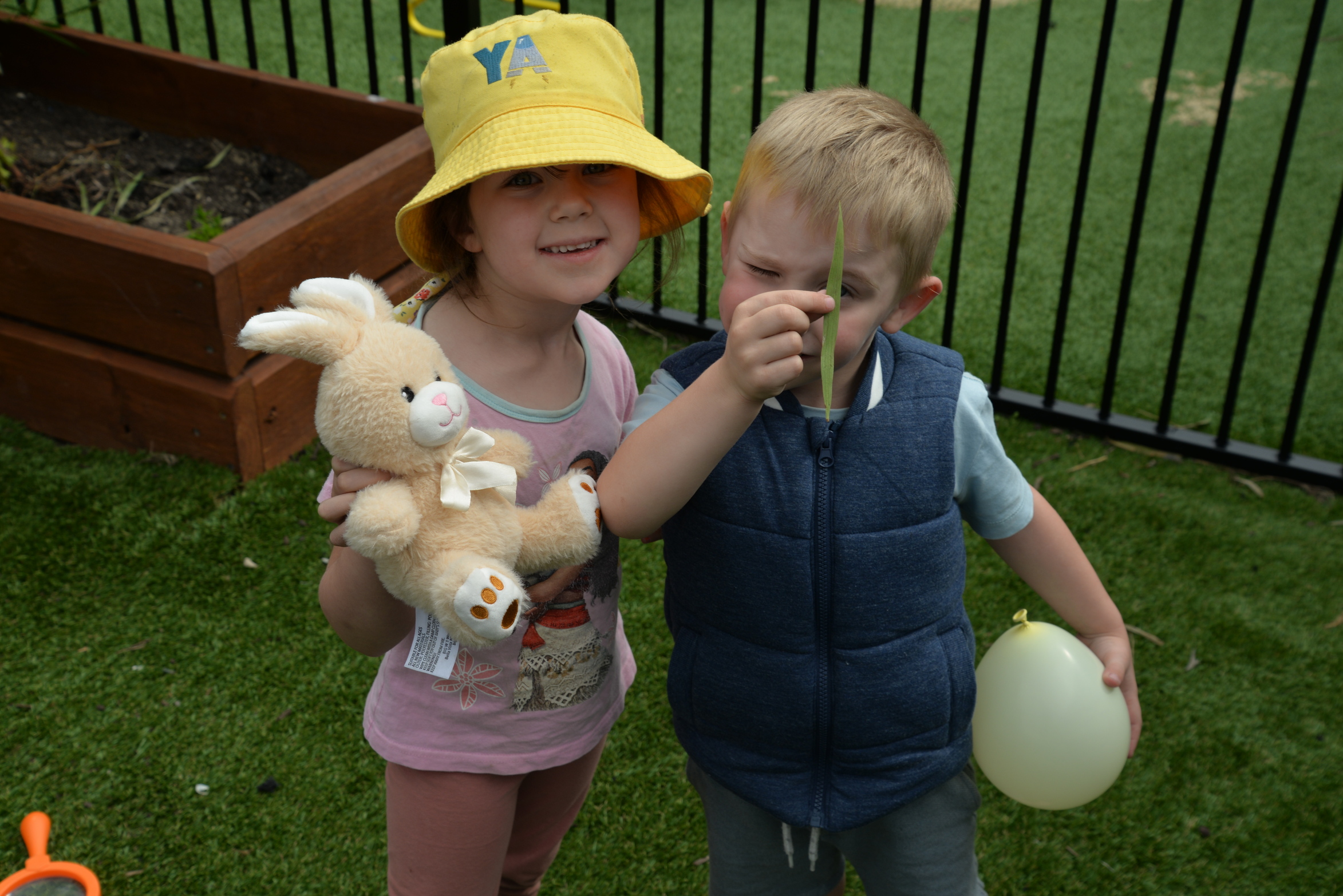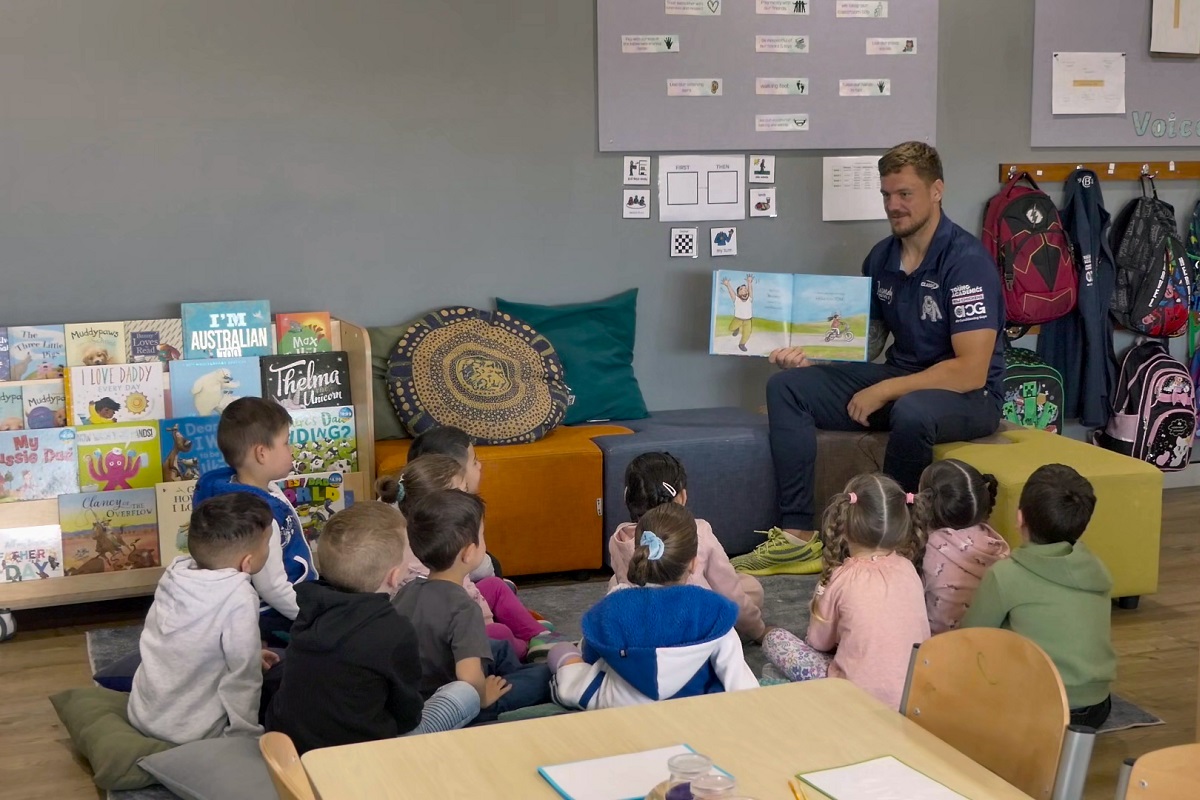The small movements made with children's hands are a big deal! Crucial for everyday tasks, hands, wrists and fingers make things happen.
Fine motor activity includes using and coordinating small muscles that control hands, fingers, and thumbs.
There is no end to improving fine motor skills. However, they are a crucial component and indicator of a child's development and growth.
Naturally, as children improve their fine motor skills, so does the development of their independence, eating, writing, dressing, play abilities, and more—essentially, central parts of their everyday lives. In addition, self-care and routine tasks are also better achieved by using fine motor skills, which can boost esteem and confidence through the simple achievement of these tasks.
At Young Academics, our experienced educators provide various activities that help children develop fine motor skills. For example, we offer opportunities for children to engage in sensory play. We also provide activities encouraging children to practise grasping, pinching, and manipulating small objects, such as building blocks and puzzles.
Our educators work with each child to develop fine motor skills through drawing, cutting, and threading. By providing a supportive and stimulating learning environment, we help children build the skills they need to succeed in school and life.
At Young Academics Early Learning Centre, we have various resources and facilities specifically designed to support the development of children's fine motor skills. This includes art materials, such as crayons, pencils, and paintbrushes, which children can use to develop their hand-eye coordination and grip strength. We also have play dough, sand, and other sensory materials that children can manipulate with their hands, helping to develop the muscles and dexterity in their fingers.
Our centres also have a wide range of puzzles, building blocks, and other toys that require children to use their fine motor skills to manipulate and assemble. We also have outdoor play areas with equipment that helps children develop their upper body strength and overall coordination.
Our experienced educators guide children through these activities, providing support and encouragement to help them build their skills and confidence, assisting children to become more independent, self-sufficient, and successful in all areas of life by incorporating fun activities that focus on developing fine motor skills.
Just remember, small hands can have a significant impact!
Why is fine motor skill development important for children?
There are several reasons why fine motor skill development is essential for children:- Benefits for academic success: Fine motor skills are essential for many academic tasks, such as writing, drawing, and cutting. Developing these skills early on can help children perform better in school.
- Benefits for daily life skills: Fine motor skills are necessary for many daily life skills, such as dressing, grooming, and feeding oneself. Developing these skills early on can help children become more independent and self-sufficient.
|
6-12 Months |
12-24 Months | 2 years | 3 years | 4 years |
| Reaching for objects | Stacking blocks | String large beads | Build taller towers | Cutting along dotted lines |
| Pincer grasp (forefinger and thumb) | Turn pages | Hold a pencil/pen and attempt to draw | Manipulate materials such as clay and play dough | Imitates a variety of shapes in drawing |
| Transfer items from one hand to another | Clapping and pointing | Begin to show a hand preference | Use a non-dominant hand to assist in activities | Attempt pre-writing by copying letters and numbers |
| Scribble and paint | Painting using arm and wrist movements | Get dressed by themselves | ||
| Self-feeding with little assistance | Self-feed with no assistance |
Our top 3 activities for toddlers to help fine motor skill development
If you want to give your child an extra edge when it comes to honing these fundamental abilities, there are several simple ways that you can help them improve fine motor skills at home without breaking the bank.|
ACTIVITY |
MATERIALS |
SIMPLE SUGGESTION |
BENEFITS |
|
PLAY DOUGH |
|
|
|
|
BEADING WITH STRINGS |
|
|
|
|
PAINTING |
|
|
|



 BACK
BACK

